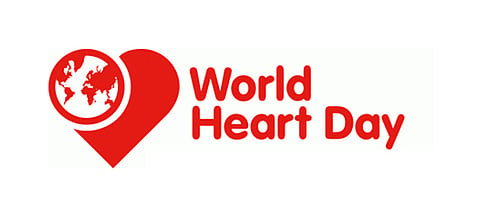

PUNE: Heart ailments are the leading cause of mortality in India, due to key challenges in cardiac care like inadequate facilities, inaccessibility and lack of awareness. Latest statistics suggest that cardiovascular diseases (CVDs) account for more than half of the mortality of the 9.8 million deaths due to non-communicable diseases (NCDs).
According to experts who discussed the rising risk on the occasion of 'World Heart Day', which is observed on September 29, enough attention has not been paid to heart failure and thus, the condition has been silently and rapidly killing one-third of patients during hospital admission and one-fourth within three months of diagnosis.
Despite the name, experts clarified that ‘heart failure’ does not mean the heart is quitting. It means that the weakened heart muscle is not pumping blood efficiently enough to meet the oxygen and nutritional demands of an individual’s body.
Dr Manohar Sakhare, Consultant Cardiologist, Columbia Asia Hospital, Pune, said that 45 per cent of all deaths due to non-communicable diseases are attributed to heart disease and most patients end-up suffering from heart failure.
“The mortality rates in India are one of the highest in the world, with heart diseases causing around 17 lakh deaths. During heart failure, the amount of blood pumped by the heart reduces and it does not meet the body’s need for blood and oxygen. It is typically characterised by shortness of breath, fatigue and swelling in feet and ankles due to fluid build-up,” said Dr Sakhare.
He said it is important for people to be aware of heart attack symptoms so that heart attack is not confused with normal chest pain and the patient is taken to hospital in the first hour.
“This increases chances of patient survival. The most common treatment option for heart failure is the coronary angioplasty. Patients who have suffered a heart attack are at a higher risk of a second heart attack. In a country with an estimated 4 crore heart patients, it is important that preventive measures are taken seriously to reduce the number of premature deaths due to heart failures,” said Sakhare.
Speaking to Sakal Times, Dr Shirish Hiremath, President, Cardiological Society of India, said 1/3rd of heart failure patients die in the hospital within six months of their treatment.
“This is an indication of how sick the patients are when they report to us. Basic knowledge of managing heart failure or detecting the disease at an early stage is missing, so it is difficult to manage them in the hospital. With the burden of heart failure snowballing in India and the high death rates associated, it is necessary to prioritise heart failure as a cardiovascular disease. The need of the hour is the coming together of all stakeholders to develop a community-level approach to raise awareness about this condition, which is used interchangeably with heart attack, or seen as an aftermath of the latter,” said Dr Hiremath.
According to Dr Gaurav Ganeshwala, Consultant Cardiologist, Ruby Hall Clinic, several youngsters with various CVDs include heart failure.
“Recently, a very young male student arrived for consultation, complaining of fatigue, breathlessness and excessive sweating. After performing a series of tests, he was diagnosed with early-stage heart failure. Excessive alcohol consumption over the years had caused severe damage to his heart. Awareness of heart disease is low in India, especially heart failure. People often confuse heart failure with heart attack, which lowers the early diagnosis and treatment of the disease,” said Dr Ganeshwala.
RISK FACTORS FOR HEART FAILURE
A history of coronary artery disease (CAD), heart attack, high blood pressure, heart valve disease, cardiomyopathy, lung disease, diabetes, obesity, alcohol and drug use, and family history of heart diseases.
COMMON SYMPTOMS THAT SHOULD RAISE AN ALARM
Shortness of breath, tiredness, swelling in the ankles, legs and abdomen, loss of appetite, sudden weight gain, rapid heartbeat, confusion or dizziness and frequent urination.
